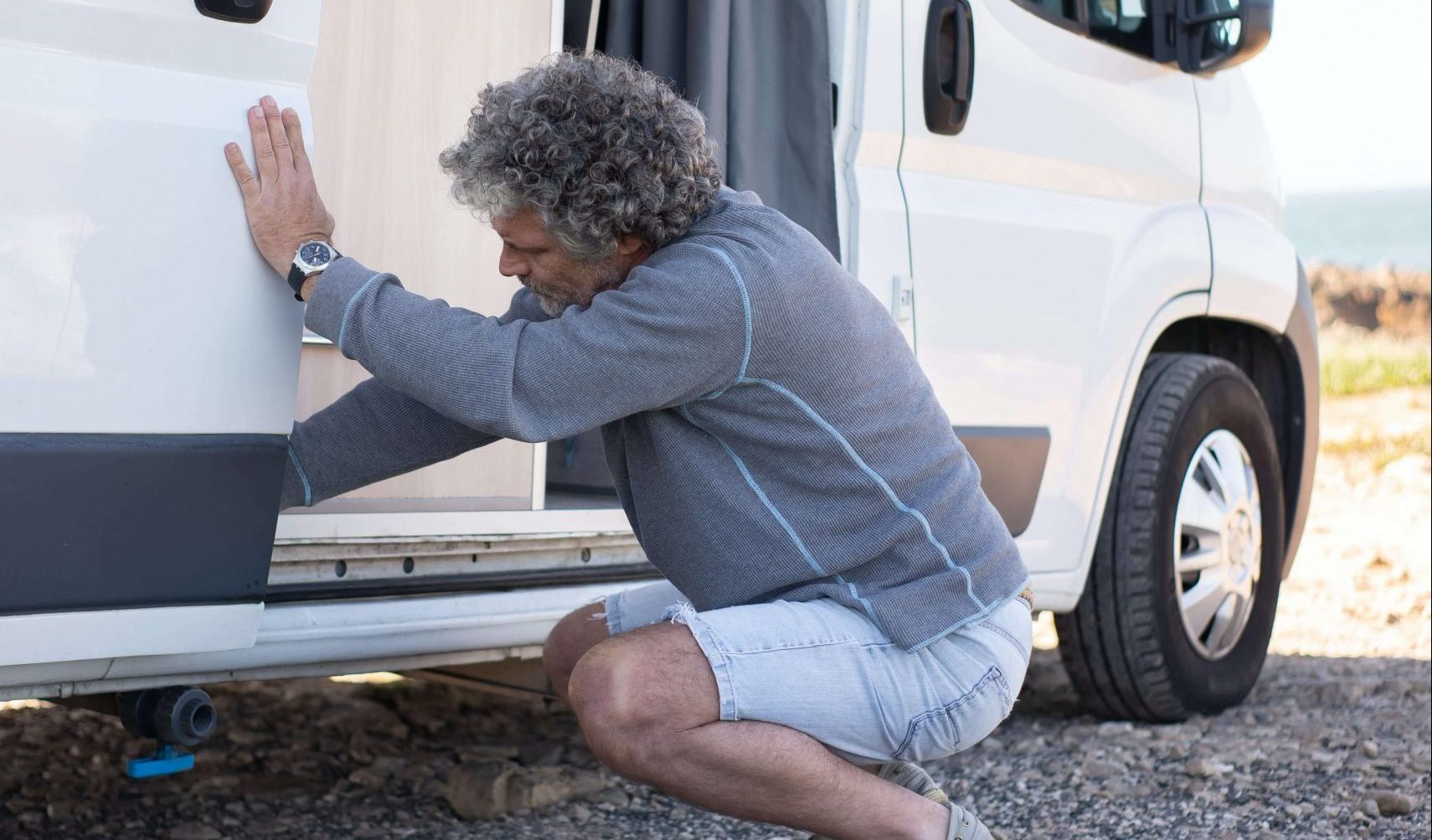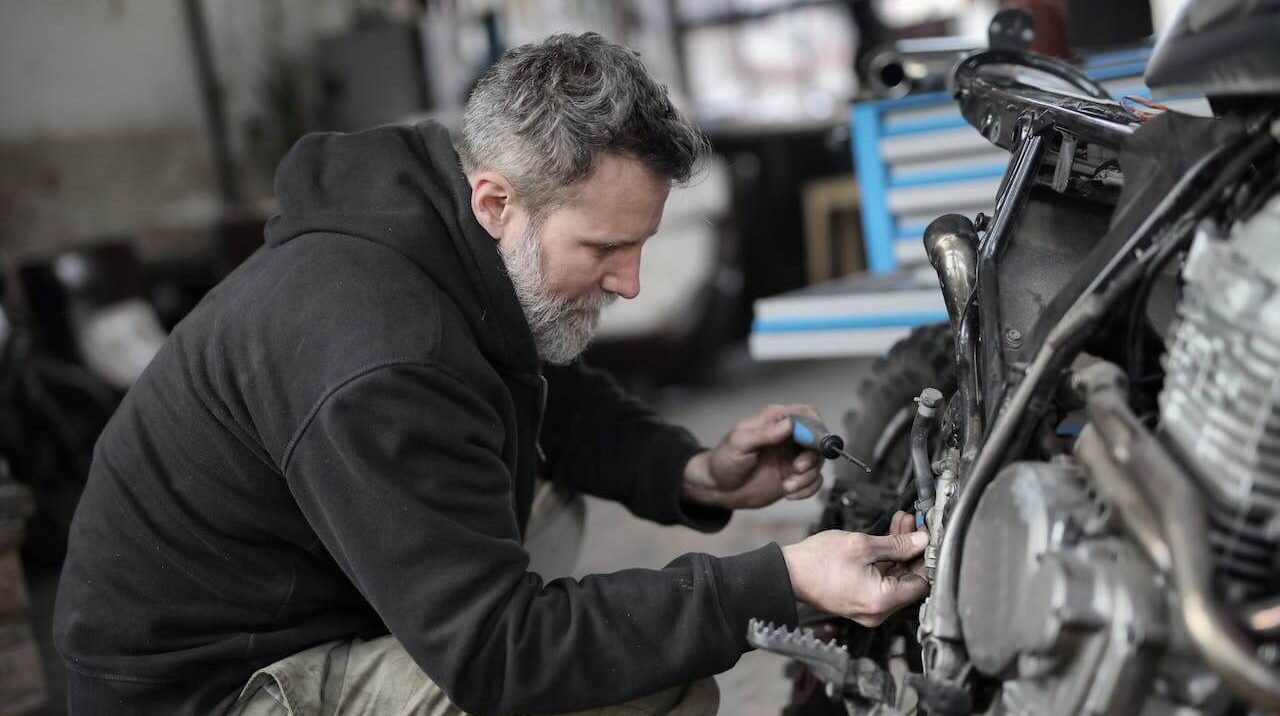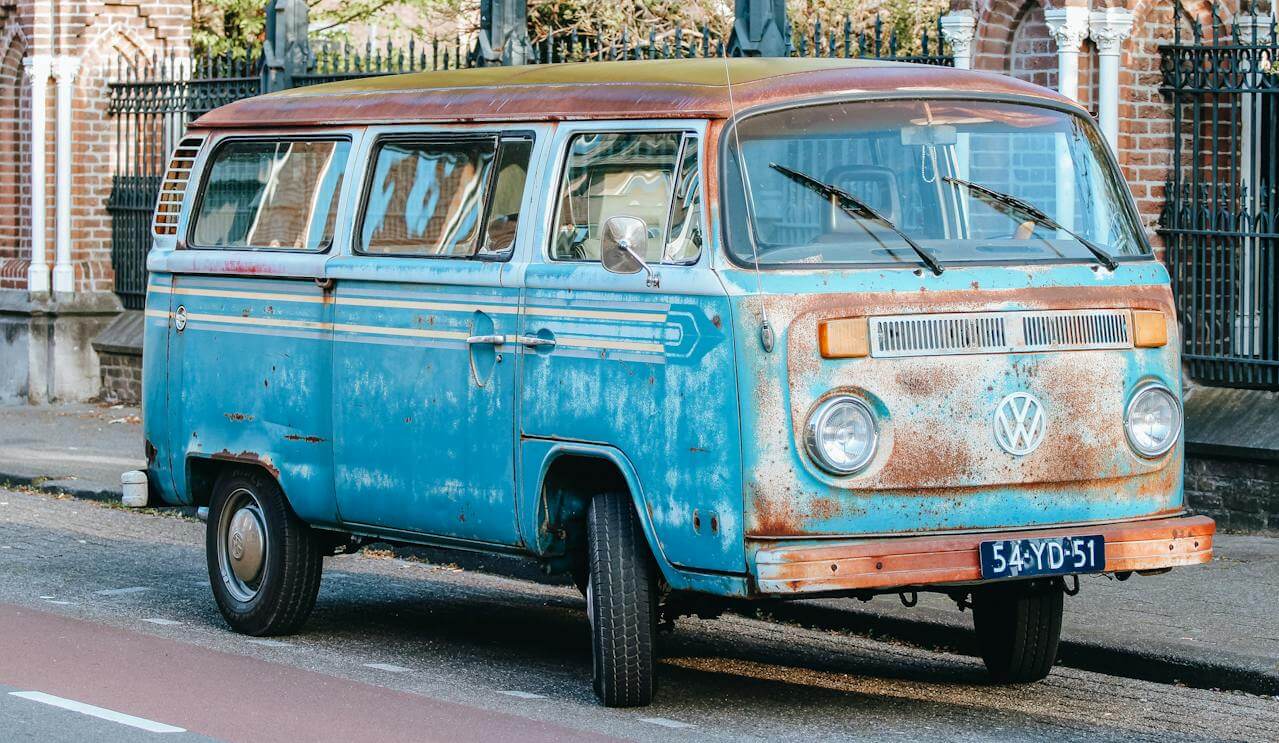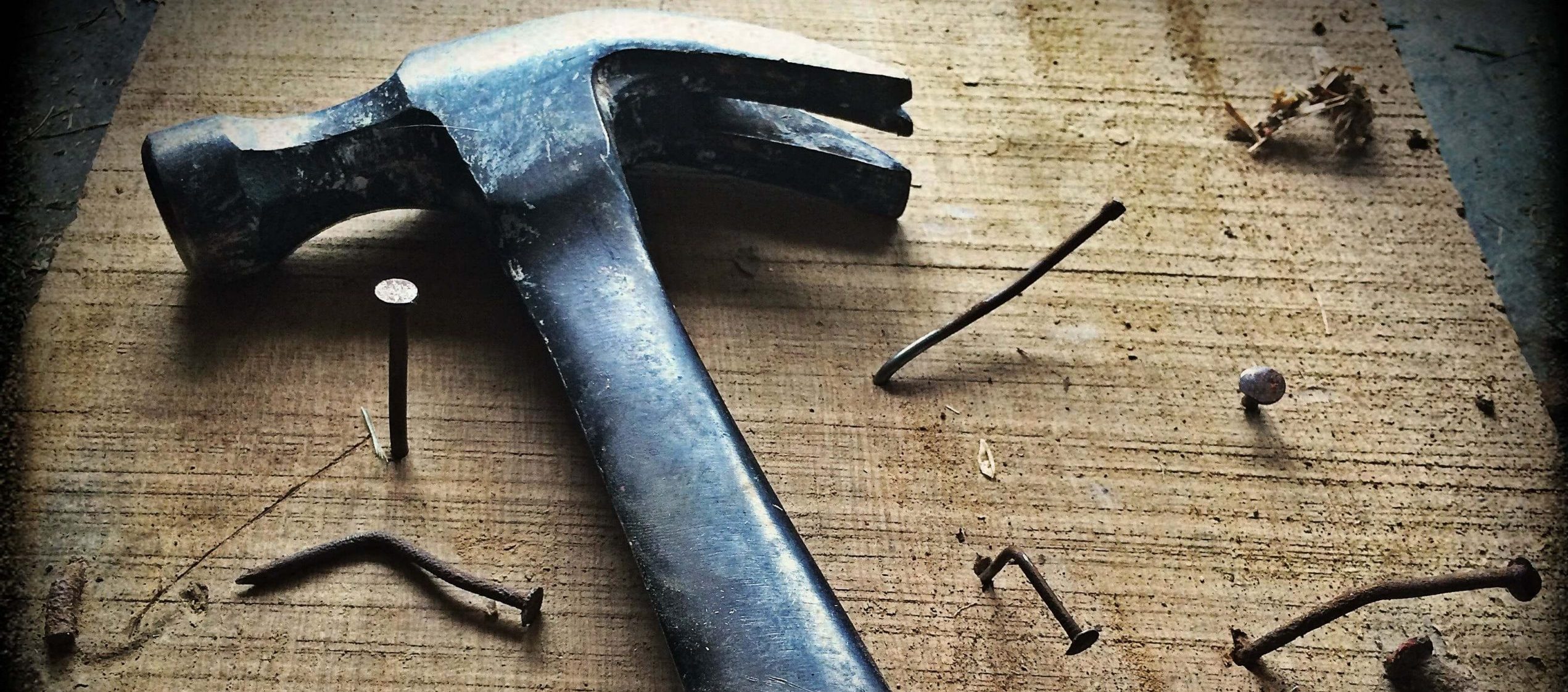Converting a campervan is a massive job, especially if you don’t have any experience. While nothing compares to the feeling of accomplishment after converting a van yourself, there are plenty of mistakes you can make and problems you can encounter.
Mistakes and problems can set your build back months or even derail your conversion completely. In this blog, we look at some common campervan conversion mistakes and alternative van conversion options that can shorten your build time and help you avoid costly errors.
1. Assuming you can do everything yourself

The first campervan conversion mistake people make is thinking they can do everything themselves. Even the most experienced converters may rely on outsourcing some of the work.
For example, gas and electricity are critical to the van’s operation, so getting them wrong can mean your vehicle doesn’t operate well enough to be on the road. Also, getting your gas and electrics wrong can be dangerous, and you don’t want to put yourself, your loved ones or potential renters in a treacherous situation.
Solution: think carefully about your skillset and what you can do yourself. And if you aren’t 100% sure you can execute the task to ensure the van’s operational use and safety, look for someone who can.
Campervan conversion specialist vs DIY conversion: which one should you pick?
2. Rushing your van purchase
If you rush into buying a van, you can buy the wrong one. While every converter is keen to get on the road, it’s always better to consider what van suits your lifestyle and budget.
If you rush into a purchase and spend £15,000 on a van you can’t use, you may have to knock some money off the resale price, diminishing your budget and putting your project on hold.
Solution: conduct extensive research into the van you require, and take someone along to get a second opinion when you view a van. If you don’t feel comfortable buying a van, converters like the team at Bhode Vans can help you get the right van for your conversion.
5 best large vans to convert into a campervan
10 most reliable vans to convert into a campervan
3. Not inspecting the van

If you’ve got the right van for your conversion, you want it to live up to your expectations. While we always advise reading reviews and asking other campers about their experience with a vehicle, every campervan is different, and reviews can only tell you so much.
Not inspecting the van can leave you open to faults you could have spotted earlier, meaning you may have to do more work to the vehicle before you can begin your conversion.
Solution: If you know a mechanic, take one along to your viewing. A mechanic will have inside knowledge of potential faults, and they can check paperwork to ensure the van is in working order. If you don’t know a mechanic, consider using a converter to source your van.
4. Not addressing dampness
Like rust, dampness can ruin your conversion and leave you with a useless van or a hefty bill to make your van liveable. Much like rust, people tend to ignore dampness. Most people don’t want to deal with it in their homes!
Plus, having damp in your van will ruin the experience you sought when deciding to convert a van. Nobody wants to sit or sleep in a wet, cold van that can damage your experience and health.
Solution: consider the airflow in your van, and use air vents and other equipment like heaters to keep fresh air circulating and your van warm.
5. Missing or ignoring rust

Any vehicle owner will be aware that rust is a huge problem. Vans spend plenty of time on the road in various weather conditions, making them more prone to rust. Vans also travel on uneven ground more than cars, meaning they’re more likely to pick up unwanted debris.
It’s also worth considering that most vans won’t have been the pride and joy of the owner’s life. They usually have a service purpose and won’t get the treatment of a classic car. Unless it’s part of a large company fleet, when do you ever see a pristine service van?
Checking and dealing with rust is even more vital when converting a van. You could do plenty of work to the vehicle only to find out you need to dismantle what you’ve done to deal with rust issues. Rust can even stop your project altogether if it’s serious, which is devastating.
Solution: check. And double-check. Ask someone else to check. If you’re unsure, hire a professional, as they know what to look for.
6. Mismanaging your budget
While it may seem simple, poor budgeting is one of the most common campervan conversion mistakes people make when converting a van. Converting a van for the first time can lead to numerous cost obstacles that could hinder your journey.
Mismanaging your budget can delay your time to get on the road or lead you to take out finance agreements or loans to cover any unexpected costs. While it’s hard to stick to an exact budget, ensure your costs don’t spiral and derail your project.
Solution: Give yourself an emergency fund. If you have £20,000 to spend on your conversion, use £15,000 as your budget. If you incur any unexpected costs, you have a safety buffer. Alternatively, you can work with a converter who will understand how to utilise your budget and may have standardised packages with a fixed fee.
How much does a campervan conversion cost?
7. Using poor tools and materials

Buying and using poor tools can affect the quality of your build. If you use substandard materials, the life of your van could decline, and you may end up redoing the work you planned to do once.
Using poor tools and materials can also affect your budget, as buying cheap and expecting results can often lead to spending double what you originally planned.
Solution: While everyone wants a good deal on materials and tools, don’t cut corners and expect results. You’re using the van, so you want the experience to be as pleasurable as possible. And if you aren’t sure how to save money and get the best tools and materials, ask an experienced professional.
8. Not meeting DVLA criteria
The worst feeling in the world is getting your dream van to discover you can’t drive it! You’re left looking at the camper you’re supposed to enjoy while reversing the process and spending more time and money to make the van road-legal.
While nothing is stopping you from converting a van into a camper van, there are specific requirements your van must meet for it to be roadworthy, such as the van’s internal and external features.
Solution: always make any changes with DVLA criteria in mind, and if you aren’t sure if you can make the change, check with the DVLA or someone who has experience making campervans roadworthy.
DVLA requirements for van conversion: How to make your van road-legal
9. Not understanding the best layout

Many factors affect the best layout for a van, such as the type of van you choose, your sleeping arrangements, water and gas storage, general storage and seat and table positioning.
And there isn’t a one-size-fits-all approach to determining your layout unless you have experience with a particular van. Even converters customise their standardised builds to suit a customer’s needs.
Picking the correct layout is one of the most stressful parts of converting your van, and you’ll probably change your mind a few times! The good thing about the format is that it can be changed if you make a mistake or have to reconsider something, but it will come at a cost. And if you’re on a budget, you’ll want to ensure you get it right the first time.
Determine your van layout by your lifestyle. What’s important to you may not be to another campervan owner. You’ll need to consider plenty of lifestyle factors, such as how you will use the van, how much you cook and the climate of the areas you’ll be travelling to.
Solution: Stick an airbed in your van and go travelling. Travelling in your van will give you an idea of what you need and what to leave out. You could also rent a pre-built version of the vehicle you intend to purchase and look at the strengths and weaknesses. You may end up buying a different van! And speak to people who have converted a van at gatherings, forums and Facebook groups.
10. Not considering alternatives
While you may have your heart set on a DIY campervan conversion, it might not be the best way to get the van of your dreams. As we’ve discussed, there are plenty of pitfalls when converting a van yourself, and it can be easier to take the stress away and choose a quicker alternative.
Buying a pre-built van is the quickest way to get on the road. You can buy a second-hand van conversion or buy a new van. Buying a new van is expensive, and you could spend upwards of £50,000.
Buying a second-hand van is cheaper, with plenty of great deals on the market. You won’t have the sense of achievement you get with converting a van, but you can always use the van for a couple of years before you start a build.
You can also use a converter. A conversion is a happy medium between doing it yourself and buying a pre-built van. You still get to retain some creative control and add personal touches while taking away the stress and time of building the van yourself. Basic builds usually start at £15-20k and aren’t as expensive as buying a new van.
Solution: consider all your options and pick the one that suits you. Sometimes, what you want isn’t what you need, and converting a van yourself is never off the table.
Need more conversion advice? Get in touch!
Bhode Vans has been converting vans since 2019, so we know a thing or two about the best options. Plus, we’ll only recommend the build we think is right for you, whether converting a van yourself or using our van conversion service. Avoid these campervan conversion mistakes and see how we can help you build your dream van.

